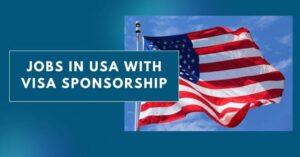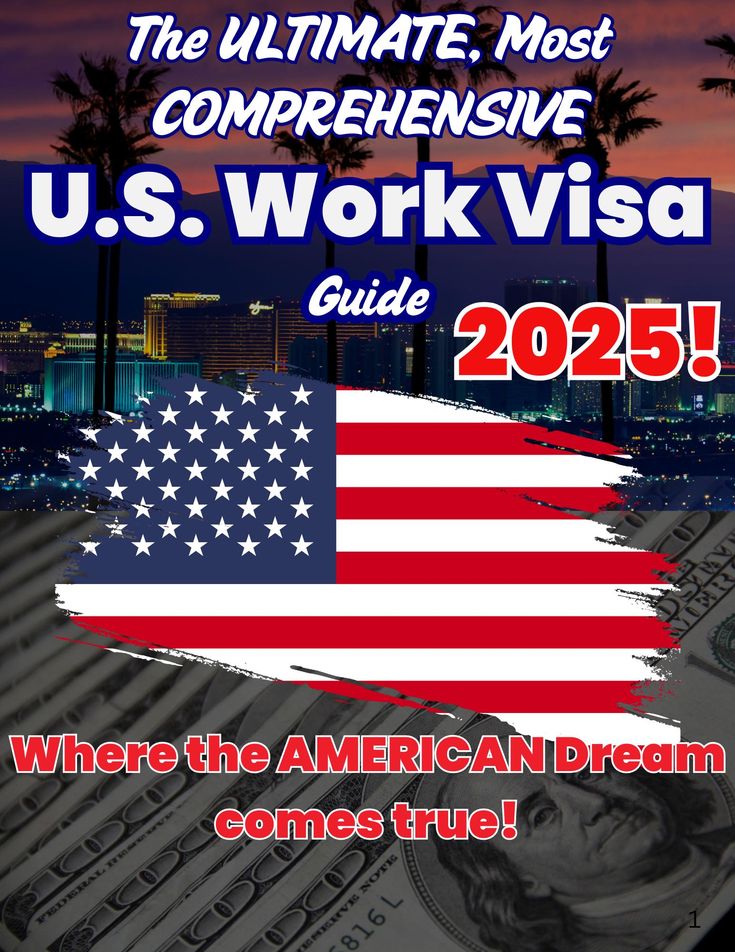
There’s potentially good news regarding the H-2B visa, a program designed for temporary non-agricultural jobs. A significant rule change in early 2025 has opened up possibilities that didn’t exist before for Nigerian citizens.
For years, the H-2B program was restricted to nationals from specific countries designated by the U.S. government, but Nigeria was often not on that list. However, effective January 17, 2025, the U.S. Department of Homeland Security removed the requirement for H-2B workers to come from a preapproved list of countries.
This means U.S. employers needing temporary workers can now potentially seek to hire qualified individuals from any country, including Nigeria, provided they follow the program’s rules and meet all requirements. This guide explains the H-2B visa clearly and outlines what this change could mean for Nigerian workers in 2025 and 2026.
What is the H-2B Visa? (Temporary Work Explained)
The H-2B visa allows U.S. employers to hire foreign nationals to come to the United States and fill temporary, full-time jobs that are not in the agricultural sector. (Agriculture uses a different visa, the H-2A, which currently also has country restrictions that affect Nigeria).
The employer must prove their need for workers is temporary, fitting one of these situations:
- Seasonal Need: Work tied to a specific time of year (like summer resort jobs, winter landscaping in warm states).
- Peak Load Need: Needing extra staff during a company’s busy season.
- Intermittent Need: Needing workers occasionally for short periods.
- One-Time Occurrence: A short-term need for a specific project that won’t repeat soon.
Common H-2B job sectors include hospitality (hotels, resorts), landscaping, construction, seafood processing, forestry, theme parks, janitorial services, and manufacturing support roles. The visa is granted for a specific period approved by the government, usually up to one year initially, but cannot exceed a total continuous stay of three years. It is not a pathway to a Green Card (permanent residence).
Why Nigerians Can Now Be Considered (2025 Update)
This is the crucial point for Nigerian workers:
- The Old Rule:S. employers could only petition for H-2B workers from countries on an official list published annually by DHS. Nigeria was frequently absent from this list.
- The New Rule (Effective Jan 17, 2025): DHS regulations no longer require workers to be from a country on that specific list.
- What it Means: A U.S. employer who proves their temporary need and follows all H-2B program steps can now petition for workers from any country, including Nigeria, to fill those temporary nonagricultural jobs.
This policy shift potentially opens the door for qualified Nigerians to access H-2B opportunities, provided a U.S. employer is willing and able to sponsor them through the required process.
What Your U.S. Employer Needs to Do (The Process Before You Apply)
The H-2B process is complex and driven entirely by the U.S. employer. They have several steps to complete before you, the worker, can even apply for a visa:
- Prove Temporary Need: The employer must first clearly define why the job itself is temporary (seasonal, peak-load, etc.).
- Get Wage Approval: They must request a Prevailing Wage Determination (PWD) from the U.S. Department of Labor (DOL) to ensure the offered wage meets the required standard for that job in that specific location.
- Recruit U.S. Workers: The employer must make genuine efforts to recruit qualified U.S. workers for the positions, following DOL guidelines (like advertising the job openings).
- Obtain Temporary Labor Certification (TLC): If they demonstrate they couldn’t find enough U.S.
workers, the employer applies to the DOL for a TLC, certifying the need for foreign workers and compliance with program rules.
- File Petition with USCIS: With an approved TLC, the employer files Form I-129 (Petition for a Nonimmigrant Worker) with U.S. Citizenship and Immigration Services (USCIS). This 1 petition requests permission to hire specific foreign workers (now potentially including Nigerians).
Only if USCIS approves the I-129 petition can the process move to the worker’s visa application stage. This employer-side process takes significant time, planning, and cost.
A Major Hurdle to Understand
Even with the country list removed, getting an H-2B visa is highly competitive due to strict annual limits set by the U.S. Congress.
- The Limit: Currently, only 66,000 new H-2B visas are available each fiscal year (October 1st to September 30th). This cap is split: 33,000 for jobs starting in the first half (Oct 1 – Mar 31) and 33,000 for jobs starting in the second half (Apr 1 – Sep 30).
- High Demand: Demand from U.S. employers vastly exceeds this supply. The cap for each half year is often reached within days, sometimes hours, of USCIS starting to accept petitions.
- Supplemental Visas: Sometimes, DHS authorizes additional H-2B visas beyond the 66,000 cap if labor needs are severe. For Fiscal Year 2025, around 65,000 supplemental visas were announced,
but these often have specific allocations (e.g., for returning workers or certain nationalities – though Nigerians could potentially qualify for the general returning worker pool if they had previously held H-2B status under different rules, or if future supplemental rules change).
- Lottery System: Because demand is so high, USCIS frequently uses a random lottery process to select which petitions (filed within the first few days) will even be considered for the available visa numbers.
- The Bottom Line: Even if a U.S. employer successfully files a petition for a Nigerian worker, there’s no guarantee it will be selected under the cap or lottery. Employers must file extremely early.
Applying for the H-2B Visa from Nigeria
If a U.S. employer successfully navigates the labor certification, petition approval, and secures a spot under the visa cap for you, then you can apply for the H-2B visa at the U.S. Embassy in Abuja or the Consulate General in Lagos.
Here’s what this stage involves for you:
- Complete the Online Application (DS-160): Fill out the Nonimmigrant Visa Electronic Application form accurately and completely. You’ll need details from the approved I-129 petition (your employer provides the receipt number).
- Pay the Visa Application Fee: Pay the non-refundable Machine Readable Visa (MRV) fee. For H2B (a petition-based work visa), the fee is currently $205 USD. This must be paid in Nigerian Naira through designated banks (like GTBank) following instructions on the official U.S. visa appointment scheduling service website for Nigeria.
- Schedule Your Visa Interview: Use the official appointment scheduling service website to book an interview slot at the Embassy or Consulate. Waiting times for appointments can vary.
- Attend Your Visa Interview: This is a critical step. You need to convince the consular officer that:
- You are qualified for the H-2B visa category.
- You intend to return to Nigeria after your temporary work authorization ends (demonstrating strong ties to Nigeria is essential).
- You meet all other visa eligibility requirements (e.g., no disqualifying criminal history).
- Required Documents for Interview: Bring:
- Your valid Nigerian international passport. o Your DS-160 confirmation page. o Your visa fee payment receipt. o Your interview appointment confirmation letter. o One recent passport-sized photograph (meeting U.S. visa photo specs). o A copy of the approved I-129 petition notice (Form I-797) sent by your employer. o Your job offer letter from the U.S. employer.
- Evidence of Ties to Nigeria: Documents showing you have reasons to return (e.g., family responsibilities, property ownership, ongoing education commitments, future job prospects in Nigeria).
Common H-2B Jobs Where Nigerians Might Find Openings
Now that eligibility is potentially open, Nigerians might find opportunities sponsored by U.S. employers in these typical H-2B fields:
- Hospitality: Housekeepers, cleaners, kitchen staff, waiters/waitresses, front desk clerks (seasonal), laundry attendants, resort workers.
- Landscaping/Groundskeeping: Mowing, planting, trimming, general garden/grounds maintenance workers.
- Construction: General laborers, helpers, roofers’ helpers, carpenters’ helpers (for specific temporary projects).
- Seafood Processing: Workers in processing plants, often in coastal areas during specific fishing seasons.
- Forestry: Tree planters, conservation workers (seasonal).
- Amusement/Theme Parks: Ride operators, food service staff, cleaners (seasonal).
- Janitorial Services: Cleaners for commercial buildings or events.
- Manufacturing/Warehousing: Temporary packers, assemblers, or helpers during peak seasons.
Wage Reminder: Employers must pay the DOL-determined prevailing wage, which varies by job and location but is designed to protect both foreign and U.S. workers’ wages.
Important Things for Nigerians to Know
- Employer Pays Most Costs: Remember, U.S. labor law and H-2B regulations generally require the employer to pay for the Temporary Labor Certification, the USCIS I-129 petition fee, and any associated recruitment costs. You, the worker, are typically only responsible for your visa application (MRV) fee and travel costs (though some employers may cover travel). Be very suspicious of anyone asking you to pay large fees for the employer’s part of the process.
- Temporary Stay Only: This cannot be stressed enough – H-2B is for temporary work. It does not provide a direct path to a Green Card or U.S. citizenship. You must intend to return to Nigeria when your authorized stay ends.
- Bringing Family (H-4 Visa): Your legal spouse and unmarried children under 21 can apply for H-4 visas to accompany you. They must attend their own visa interviews. However, H-4 dependents associated with an H-2B visa are generally not authorized to work in the U.S.
- Finding Genuine Offers: Focus your search on established U.S. companies in H-2B industries or work through reputable, registered international labor recruiters who partner directly with U.S.
employers. Avoid unsolicited offers via social media or agents demanding money for visa guarantees.
Tips for Nigerian Applicants
- Network Carefully: Use professional platforms like LinkedIn or industry-specific groups cautiously to connect with U.S. companies or recruiters in H-2B fields, but verify legitimacy thoroughly.
- Highlight Relevant Skills/Experience: Even for unskilled roles, tailor your CV to show any experience related to hospitality, cleaning, manual labor, construction, etc. Reliability and a good work ethic are key selling points.
- Prepare for the Visa Interview: Be ready to clearly explain your job offer, your work background, and your strong ties to Nigeria demonstrating your intent to return home after the temporary job.
Honesty and clarity are crucial.
Conclusion:
The removal of the H-2B eligible country list in early 2025 marks a significant policy shift, creating a potential new avenue for Nigerian workers seeking temporary non-agricultural employment in the United States for 2025/26. However, accessing this pathway depends entirely on finding a legitimate U.S.
employer willing to undertake the complex and costly sponsorship process and successfully navigating the highly competitive visa cap.
It is essential for Nigerian applicants to understand that H-2B is an employer-driven, temporary program with strict numerical limits. Focus on seeking genuine job offers through reliable channels, be wary of scams, and prepare thoroughly for the visa application process, especially demonstrating your intent to return to Nigeria.
